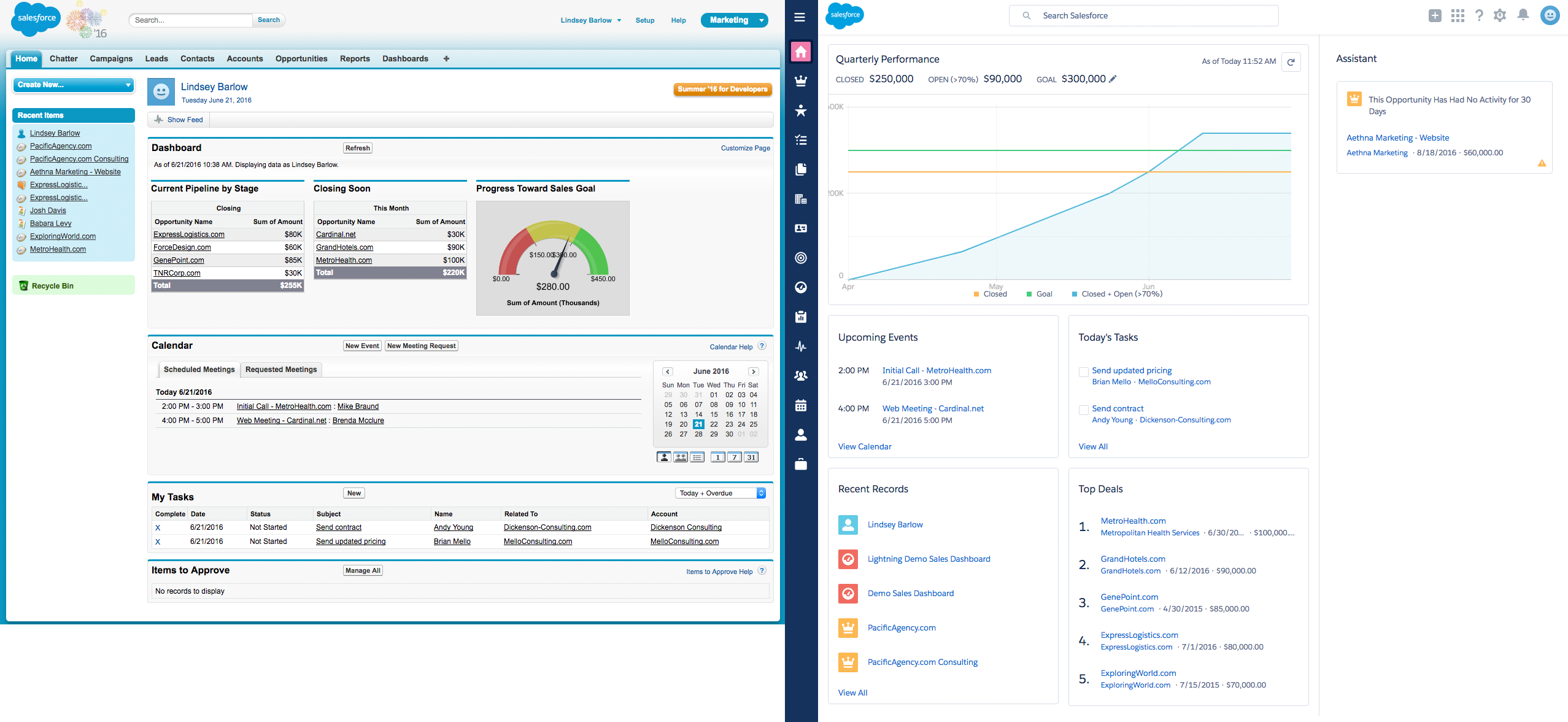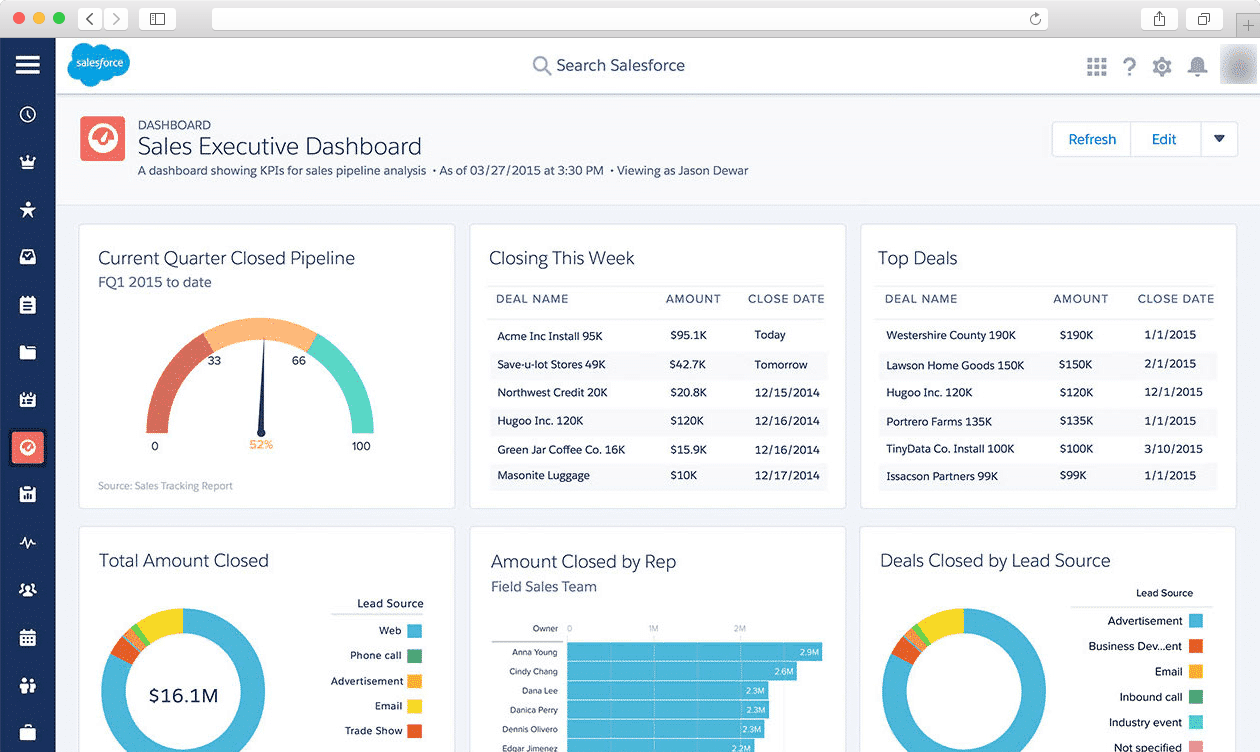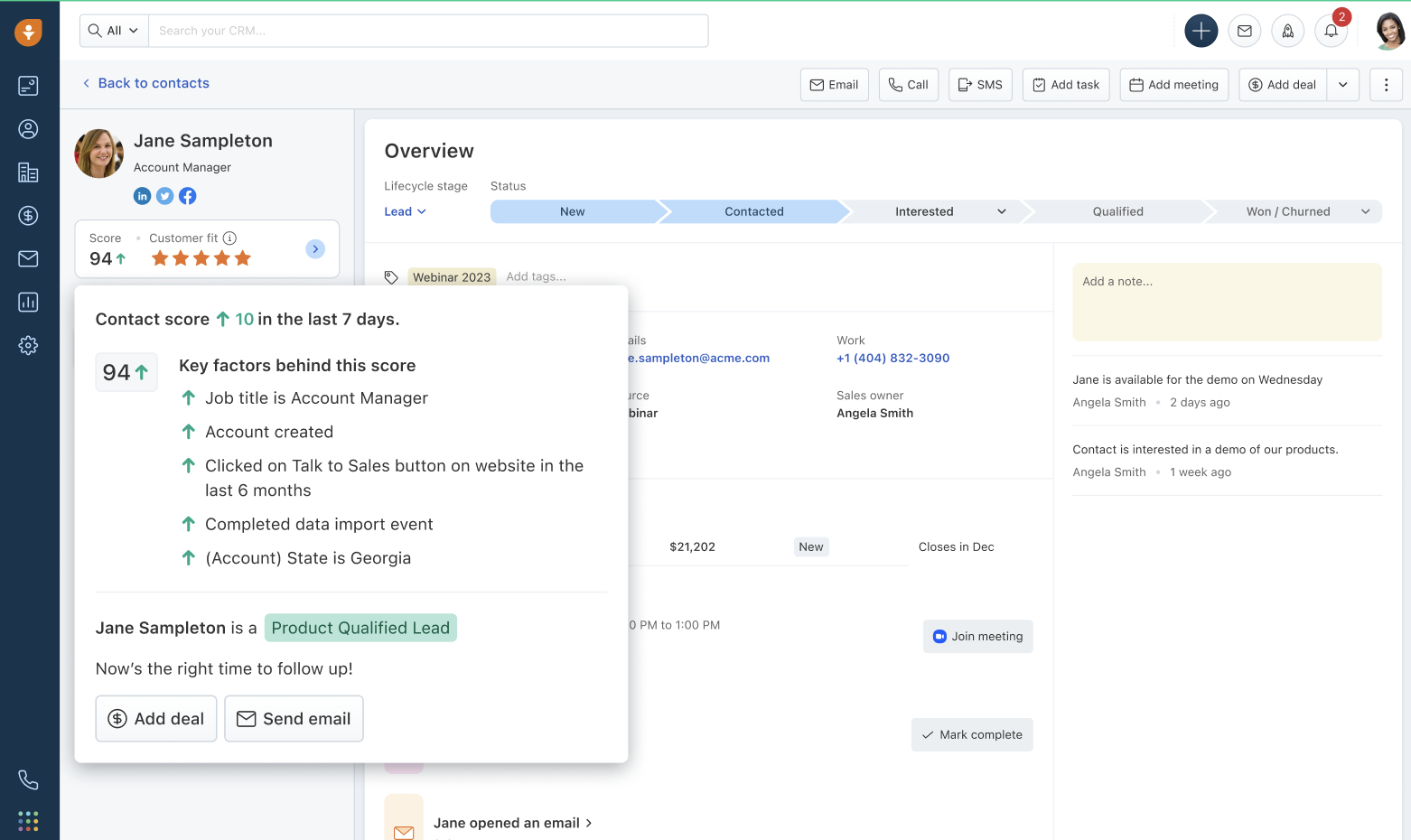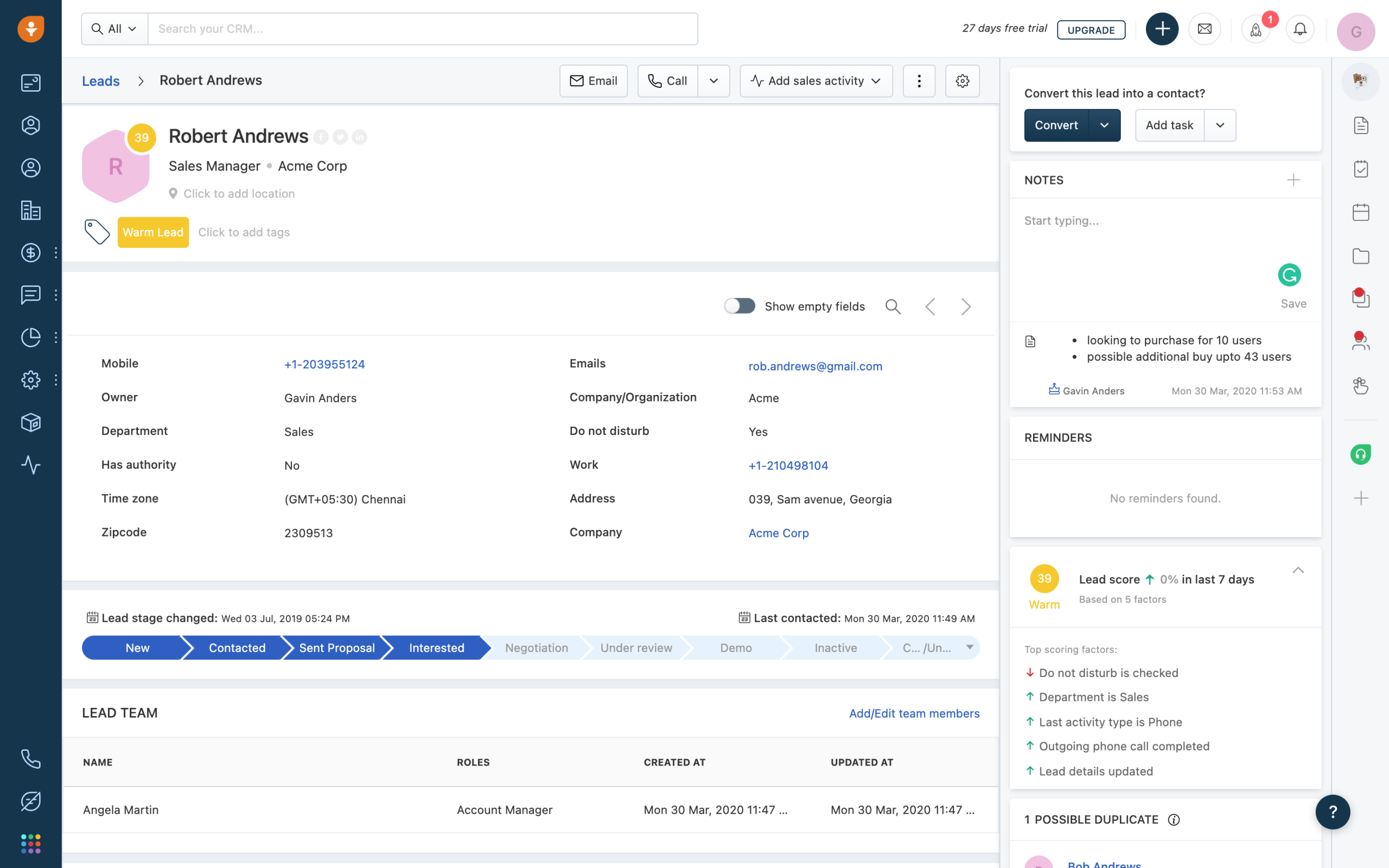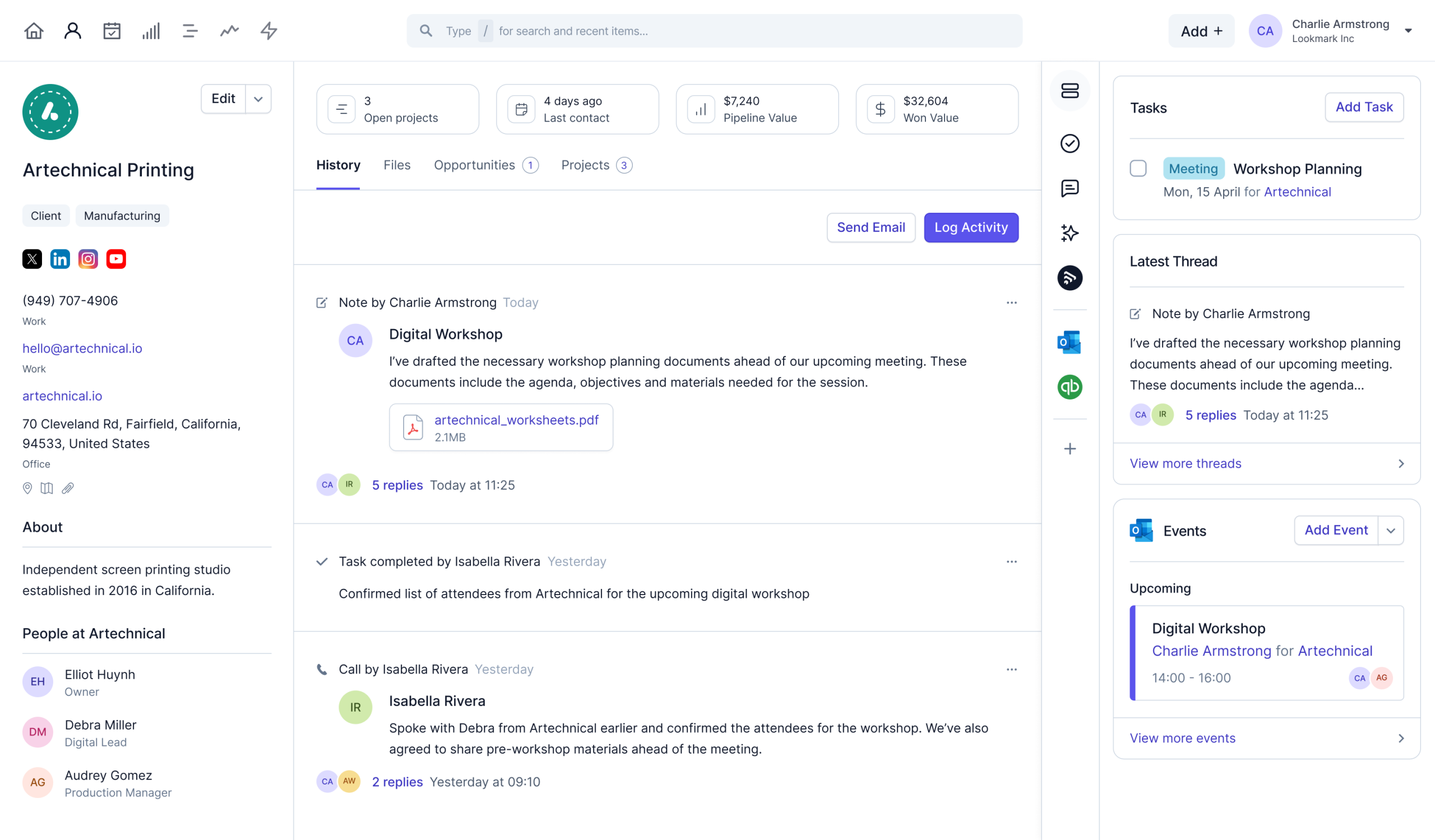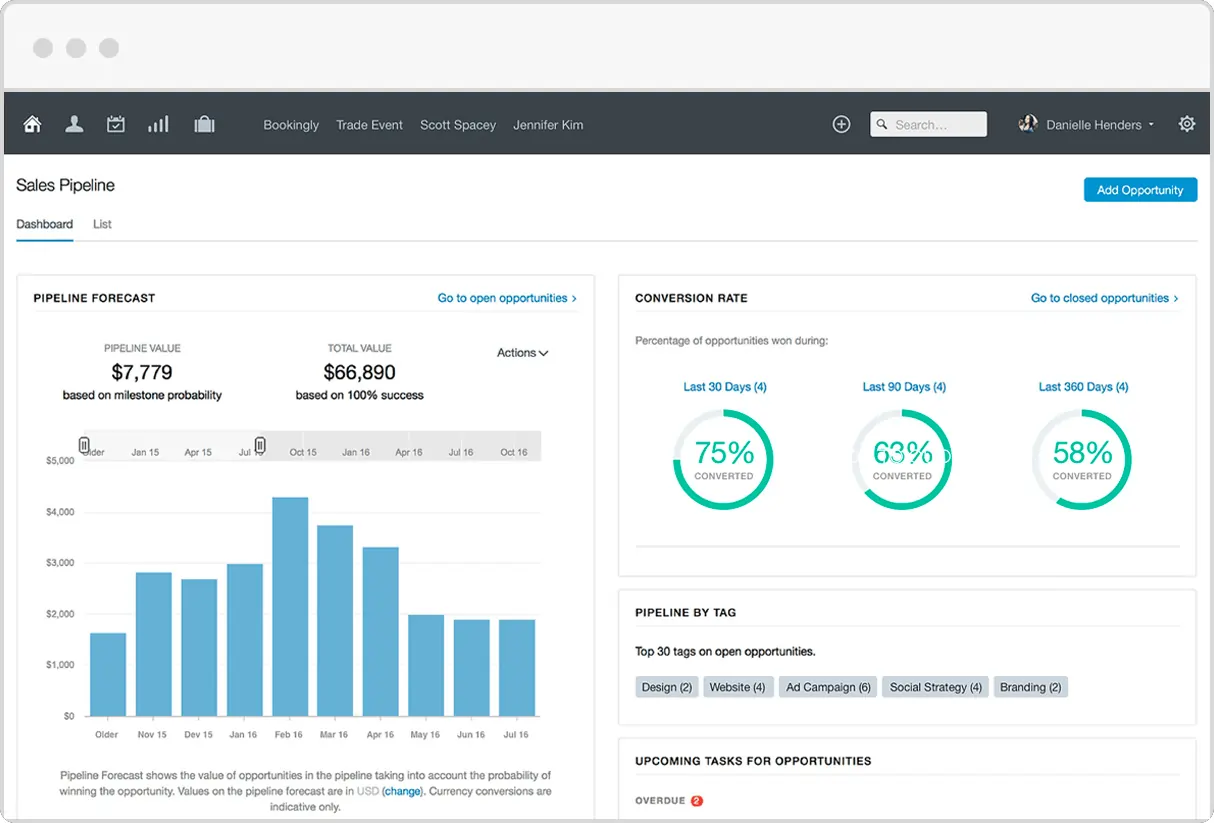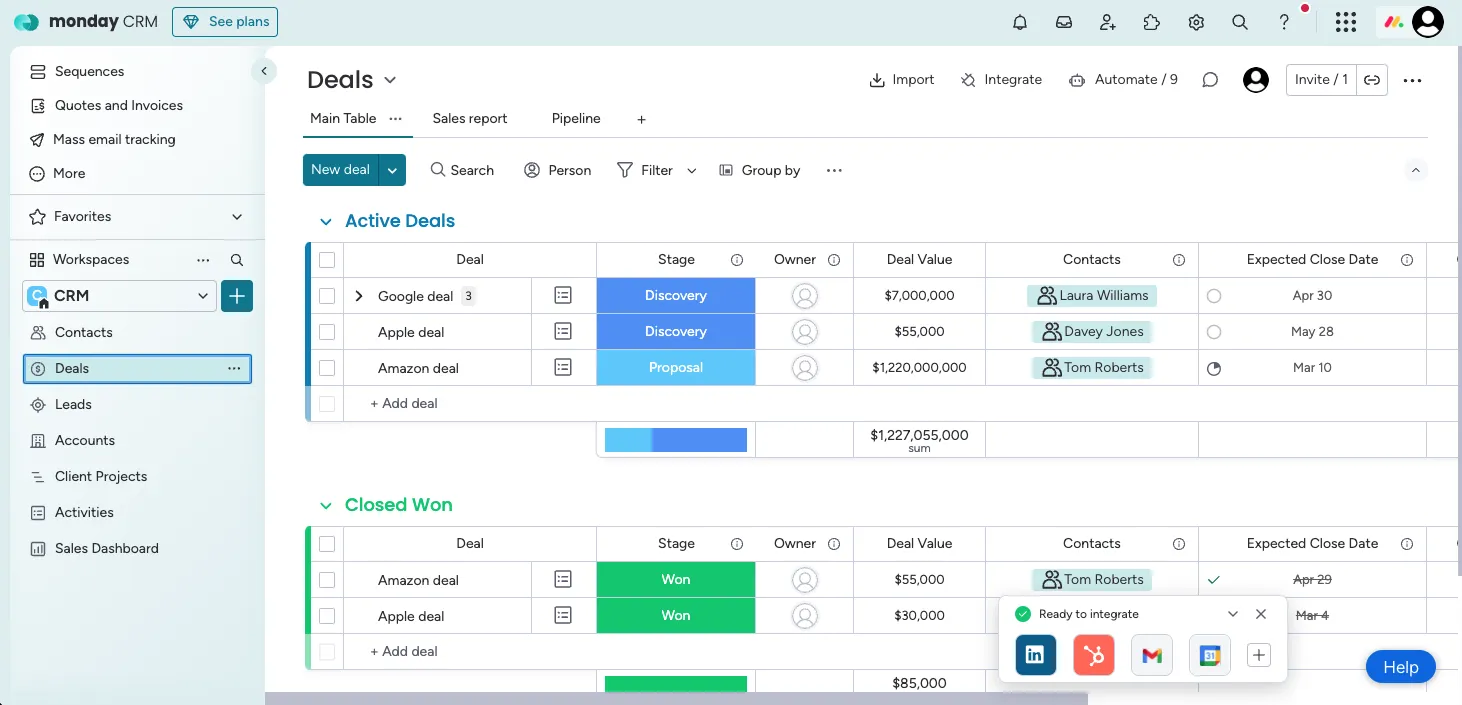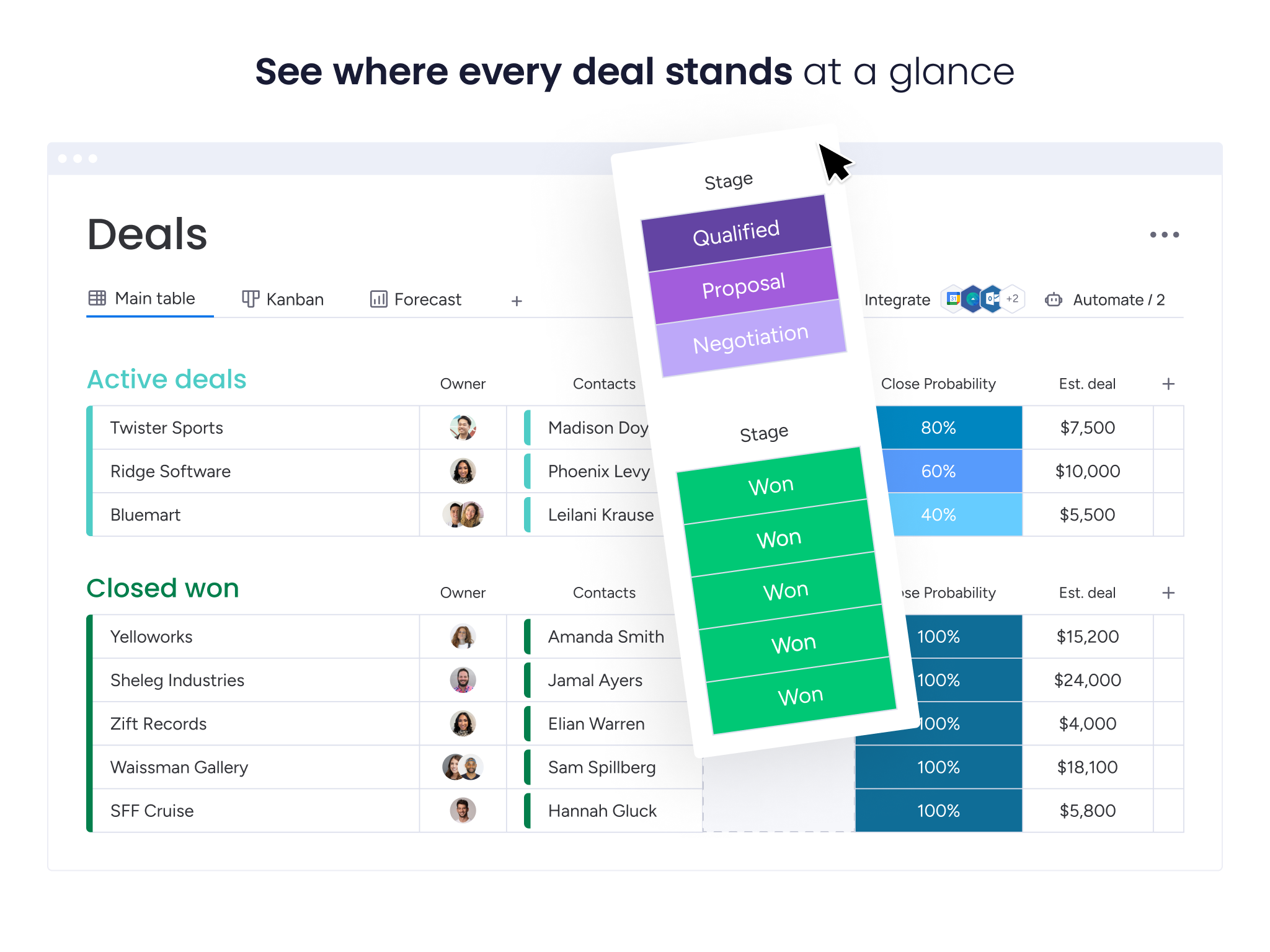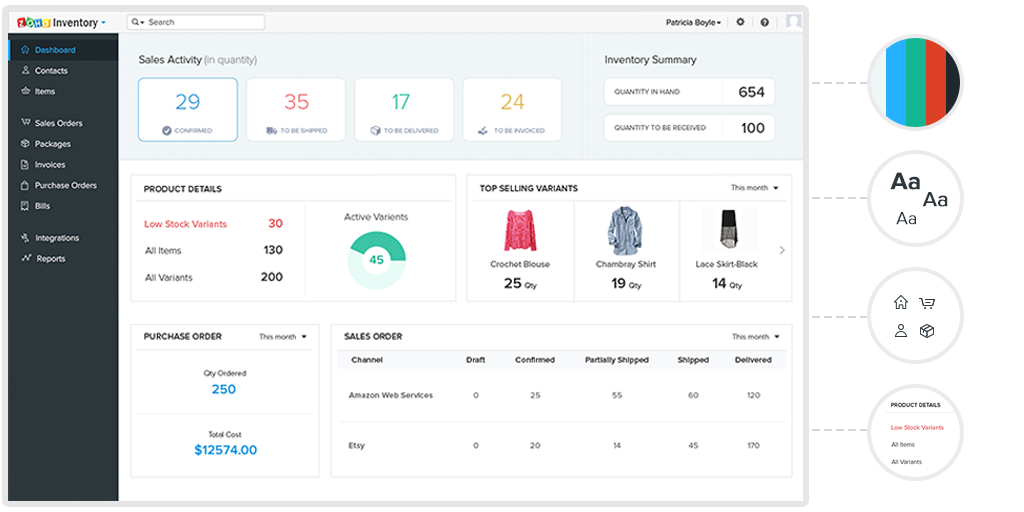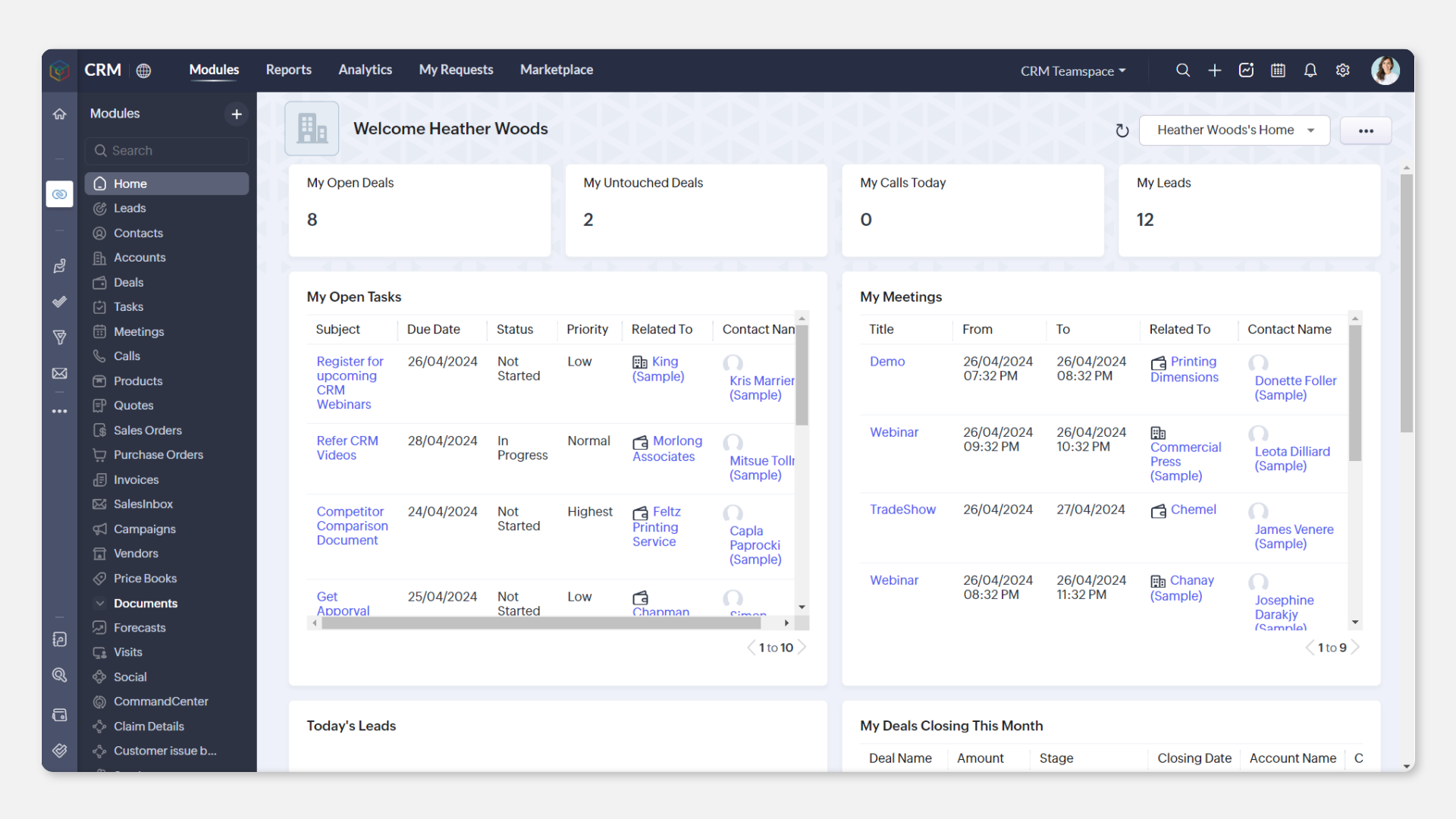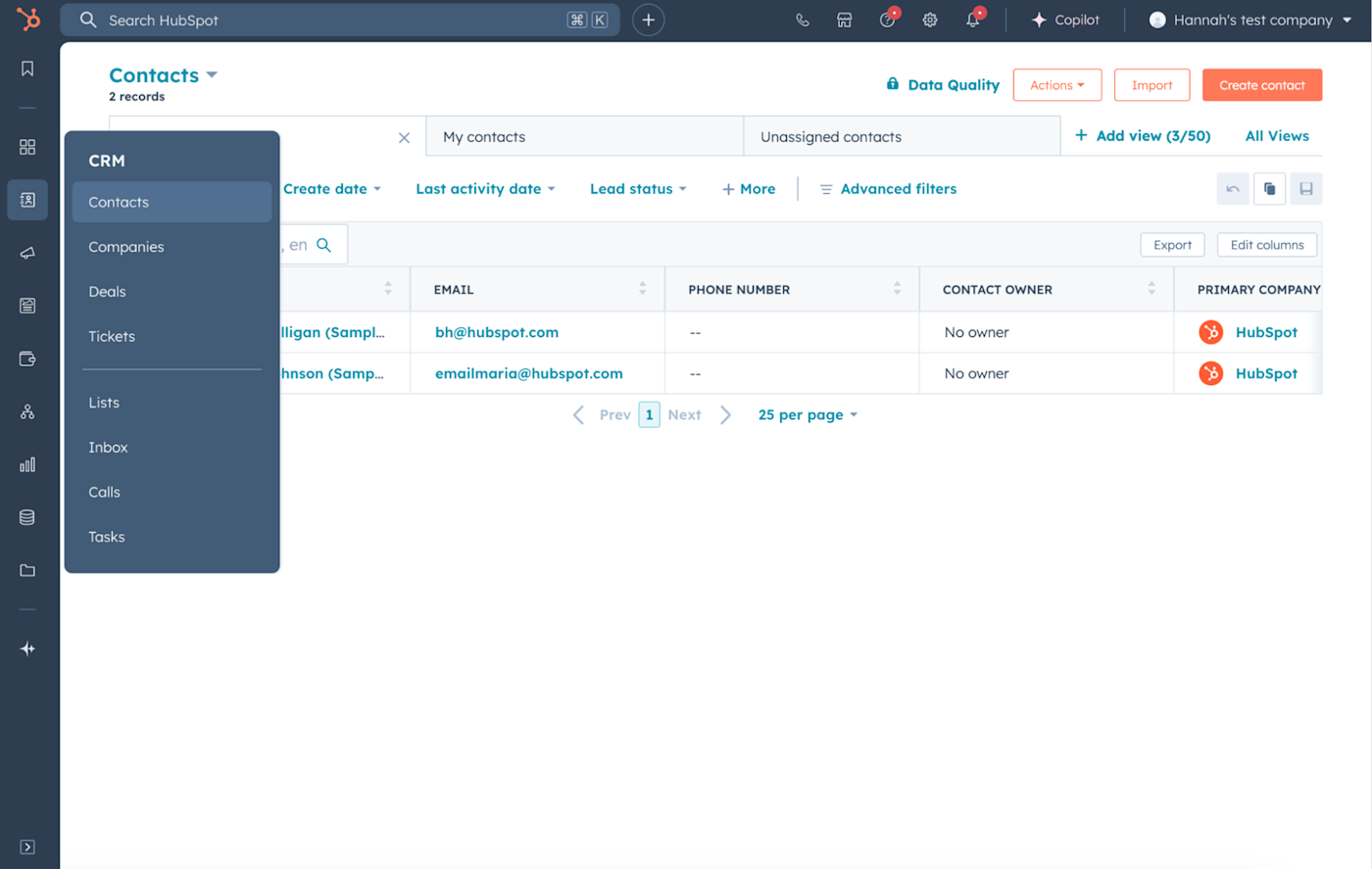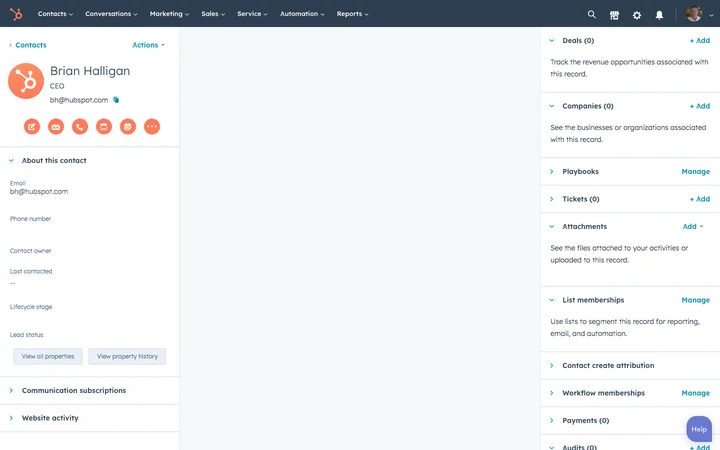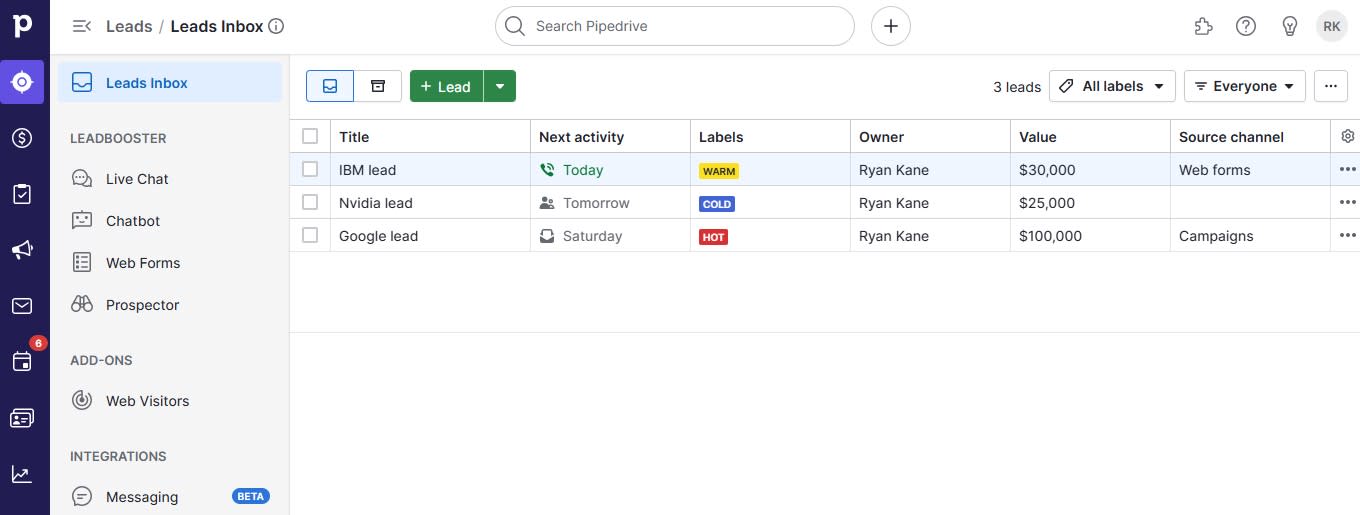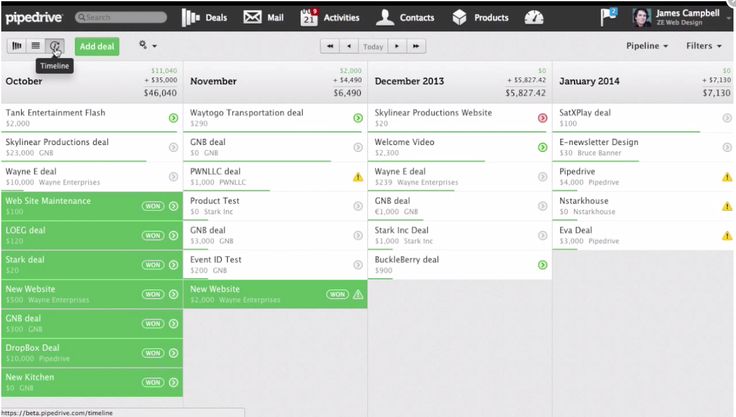Choosing the best low-cost CRM

Introduction
Many entrepreneurs believe that their companies do not need to implement a CRM system, because it involves additional costs and time for implementation and training of employees. Another unfounded opinion is that a small number of clients can be managed without special software. But in practice, a CRM system makes the work of small business owners and entrepreneurs easier. It automates many routine processes, makes work more productive and helps to scale.
Gartner has published the 2024 Global Software Buying Trends Report, which describes the main trends in purchasing software for business process automation in 2024. The results of the study show that in 2024, the main reasons for software investments are the need to improve productivity (52%), concerns about security and cyberattacks (47%), and the needs associated with the evolution of current technologies (43%).
The study also identified key factors influencing software choice: cost (49%), security (48%), functionality (40%), and ease of use (38%).
Price issue
A particularly important issue when implementing a CRM system is the cost issue.
The issue of price is especially relevant for small businesses, because at the initial stages of development, companies usually have a limited budget for implementing modern technological solutions. Therefore, it is very convenient when the provider offers flexible tariff plans, where you can choose exactly those functions that employees will actually use, without overpaying for unnecessary features. Some CRM systems offer free tariffs for small companies, which will help entrepreneurs at the beginning of working with the system. And you can take out a paid subscription already during the scaling of the business.
In this article, we will try to figure out how to choose the best option for your business, while saving you money. Let’s first consider a generalized table comparing CRM systems, and only then consider each of the options in more detail. So, let’s get started.
| CRM | Ease of Use | User approval | Deep Customizations | Total Rate | Reporting | Overall rating |
| Salesforce | 4.0 | 4.4 | 4.7 | 22.4 | 4.9 | 4.4 |
| Freshsales | 4.5 | 4.4 | 4.2 | 21.6 | 4.2 | 4.3 |
| Capsule | 4.6 | 4.6 | 3.5 | 21.2 | 4 | 4.5 |
| monday sales CRM | 4.5 | 4.5 | 3.5 | 23.6 | 3.5 | 4.1 |
| Zoho | 4.1 | 4.4 | 4.7 | 21.5 | 4.0 | 4.3 |
| HubSpot | 4.1 | 4.4 | 4.4 | 21.7 | 4.4 | 4.4 |
| Pipedrive | 4.6 | 4.7 | 3.5 | 21.0 | 4.0 | 4.2 |
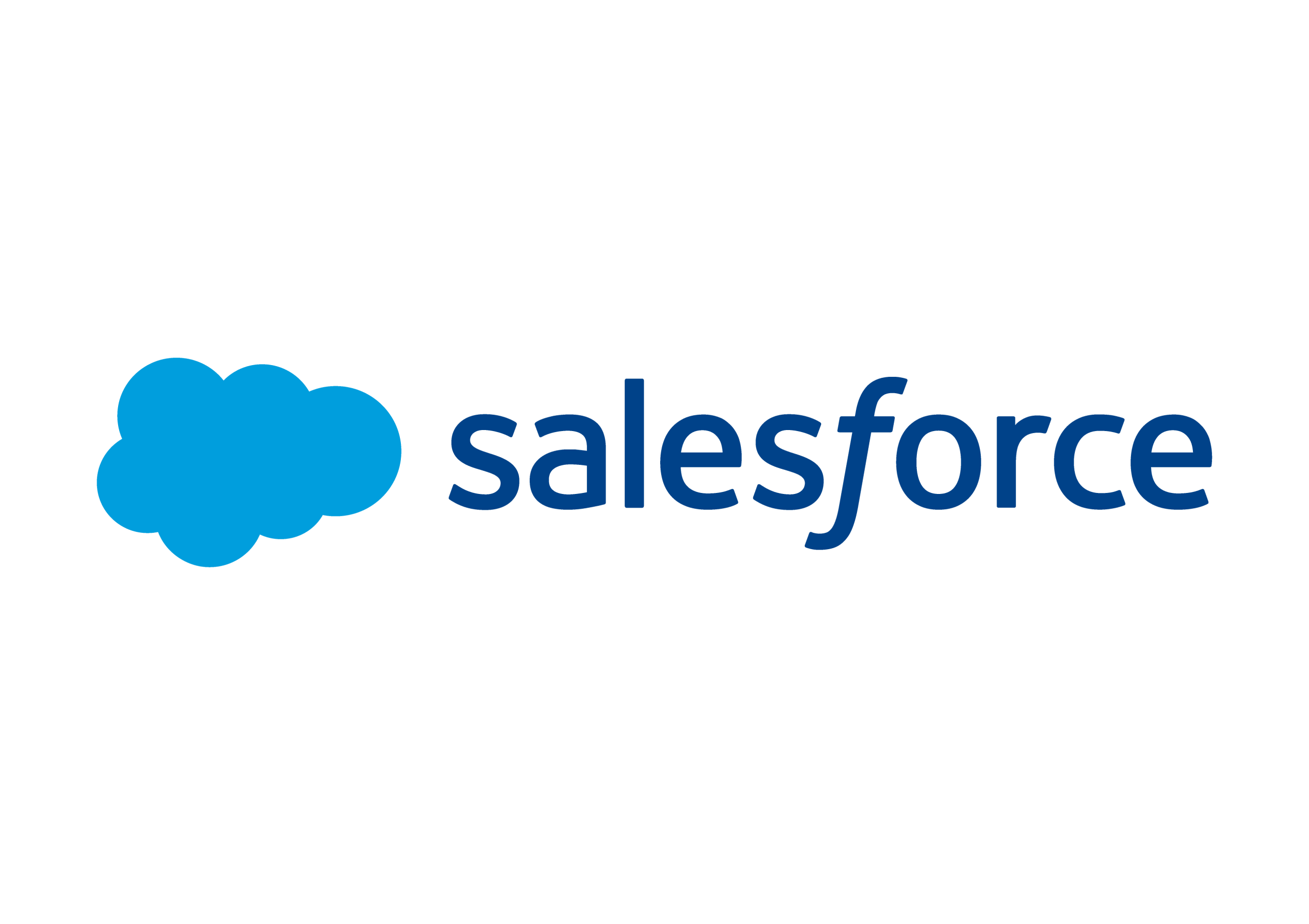
Salesforce
Platform has long gone beyond just CRM. Salesforce is a cloud platform that, in addition to the CRM part, has a lot of interesting things. Salesforce allows you to create and deploy custom solutions, automate business processes, and integrate with external applications.
Salesforce is a platform that is fully hosted on Salesforce servers in the cloud. Salesforce was founded in 1999 by former Oracle CEO Marc Benioff. The main idea of its creation is to build affordable software and implement it completely online as a service.
In addition, Salesforce is a cloud platform, on the basis of which, in addition to the CRM part, there is a lot of interesting things.
Most of the world’s enterprise companies are users of the Salesforce platform and use this system to run their business and organize data. For example, we can name such global brand giants as Western Union, Adidas, Canon, Cisco, Philips, Toyota and many others.
You will be surprised, but to work with Salesforce you don’t need much – just access to the Internet will be enough. All you need is to go to the site in your browser, enter your username and password, and… voila. You can create your own functionalities or use the standard ones already created by Salesforce.
Convenience
- Intuitive interface: Easily adapts to needs, allowing you to quickly navigate.
- Mobile access: This allows the employee to control business processes and customer relations, even without being at the workplace.
- Automation: Simplifying everyday tasks of the same type and not only, which leads to time savings.
- Personalization: Allows you to customize dashboards for individual goals.
- Integrations: Works seamlessly with other tools, such as WordPress, making work easier.
- Data analysis: Einstein AI provides predictions and insights, helping to make decisions.
Pricing policy
- Starter Suite (formerly Essentials): The price is $25 per user per month, billed monthly or annually. This plan is designed for small teams (up to 10 users) with basic CRM needs like lead, contact, and opportunity management. It includes features like integration with Gmail or Outlook and access to the Salesforce mobile app.
- Pro Suite: The price is $100 per user per month, billed annually. This plan expands on the Starter Suite with features like lead scoring, collaborative forecasting, and workflow automation. It’s a good fit for growing SMBs with more complex sales processes.
- Enterprise: This plan costs $165 per user per month, billed annually. The Enterprise plan offers advanced automation, sales process management, and customization options, making it suitable for larger businesses with more complex sales needs. In addition – it includes API access for integration with other products.
- Unlimited: It costs $330 per user per month, billed annually. The Unlimited plan provides the full range of Salesforce features, including priority support and expanded customization options.
Key features:
- workflow automation;
- contact management;
- collaboration;
- lead generation;
- reporting;
- mobile access;
- forecasting;
Advantages
- Simple and clear interface.
- Convenient user settings.
- Integration with social networks.
- Integration with third-party programs.
Disadvantages
- The cost of CRM is higher than other similar systems.
- To expand the functionality, you need to purchase licenses.
- Limited availability. Yes, the CRM system does not support working with many cloud systems.
- Services for small businesses are limited in functionality.
- In terms of analytical processing of information, CRM solutions are somewhat limited.
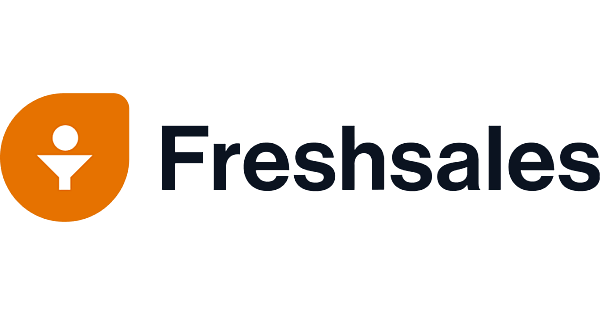
FreshSales
Unified CRM solution for sales departments. Freshsales is a complete CRM for sales departments. Supports mail, telephony, tracking of user behavior, people and much more
Freshsales is an AI-powered CRM platform developed by Freshworks that streamlines sales processes and increases customer engagement. It has an extremely wide range of functionalities for lead management, workflow automation, actionable insights, and more. The system allows sales teams to focus on closing deals effectively.
Freshsales is a great choice for companies that need a sales-focused CRM that increases customer engagement with AI-powered insights. Its user-friendly interface, robust automation features, and scalability make it suitable for companies of all sizes. However, companies that require extensive offline access or advanced features at a lower price may need to evaluate their specific needs against the available plans.
Convenience
- Firstly, the system has an intuitive interface that allows you to quickly learn how to use the main functions even without technical experience.
- Secondly, Freshsales provides sales automation – from leads to closing deals, which significantly saves time and reduces the amount of routine work.
- Thirdly, CRM includes built-in phone, email and chat, which allows you to conveniently communicate with customers directly from the platform.
- In addition, real-time analytics and reports help track the effectiveness of the sales team and make informed decisions.
- Ease of integration of the system with other services, hence convenience and flexibility in work.
Pricing policy
- Enterprise $69 per user per month. Get extensive customization, control, management, etc.
- Pro $39 per user per month. A great solution for managing multiple sales teams. For example, you can manage multiple sales channels, workflows, deals, accounts, AI-powered deal analytics, and more.
- Growth $15 per user per month. A great CRM automation worth trying. It will help you avoid unnecessary work and allow you to spend more time selling.
- Free Up to three users. The solution will help your sales teams organize their work and quickly interact with potential customers.
Key features:
- Mail tracking, open letter.
- Sales campaigns.
- Personalization of templates.
- Notifications.
- Planning letters.
- Calendar synchronization.
- Advanced functions of sending letters and phone calls.
- Assignment of numbers.
- Automatic call logs.
- Personalization of voice mail.
- Record calls. Call history.
- Site and application tracking.
- Activity schedule.
- Segmentation by behavior.
- Team segmentation.
- Meetings, tasks and notes.
- Mass actions.
- Role-based access.
- Filtering and sorting deals.
- Setting up the sales process.
- Sales dashboard.
- Transaction analysis.
- Visual sales and income reports.
- Easy migration from Insightly, Zoho, Pipedrive and Salesforce.
Advantages
- Excellent support from developers.
- Powerful functionality.
- Sales processes are adaptive.
- Simplicity and accessibility in use.
Disadvantages
- Very little accessibility functionality.
- Little information export functionality.

Capsule
Capsule CRM is a web service with the functions of a CRM system, which is actively used by small businesses and sales departments. It helps to manage relations with clients, sales, letters, stores the entire history of interactions, work with tasks and perform other operations.
Capsule CRM is a web service with the functions of a CRM system, which is actively used by small businesses and sales departments. It helps to manage relations with clients, sales, letters, stores the entire history of interactions, work with tasks and perform other operations.
The advantage of Capsule CRM can be called the possibility of system integration with Google Apps and other services. Important features of the solution include: import of contacts from Outlook, Gmail, business cards, tables and CSV, customization for business processes using categories, management of a list of tasks, calendar, tracking of transaction stages.
Convenience
- First of all, Capsule CRM has a simple and intuitive interface, which allows new users to quickly adapt and easily manage a client base.
- In addition, the system provides convenient management of contacts, deals and tasks in a single space – without unnecessary tabs and overload.
- Also, Capsule allows you to customize sales stages, tags, templates and fields to the needs of a specific business – this makes the system flexible to use.
- Moreover, thanks to the mobile application, you can work with CRM on the go – check notes, call or add tasks from anywhere.
- Finally, Capsule CRM has integrations with popular services such as Gmail, Outlook, Xero, Mailchimp, which helps maintain a single ecosystem for work.
Pricing policy
- Ultimate $81 per user per month. This plan offers premium registration as well as dedicated account management.
- Advanced $56 per user per month. Drive rapid growth with enhanced flexibility
- Growth $36 per user per month. Everything for your business – detailed reports, extensive settings, workflows
- Starter $19 per user per month. Basic tools for beginners. Set up contacts with potential customers using them
- Free 2 users and only 250 contacts. Includes basic features
Key features:
- First, Capsule CRM focuses on customer relationship management, providing convenient tools for saving the history of contacts, notes, calls and email correspondence.
- In addition, the system offers a visual pipeline process that allows you to easily track the status of each deal at all stages of the sale.
- Capsule also supports customization of fields, tags and templates, which allows you to adapt CRM to the specifics of different business industries.
- Moreover, analytics and reports help you evaluate team performance, forecast sales and identify weak points in the funnel.
- In conclusion, Capsule CRM has a cloud architecture that provides accessibility from any device and automatic data storage without complex configuration.
Advantages
- Visualization and clarity. The user can monitor the progress of deals from their inception to closure. Sales visualization for management
- Convenient contact management. Allows the user to track interactions between existing customers and prospects, as well as effectively manage contacts
- A great option for small businesses on a tight budget looking for an affordable yet powerful CRM solution.
Disadvantages
- More powerful CRM platforms may have a higher level of customization compared to Capsule
- May lack features that larger businesses with more complex CRM needs may require.

monday sales CRM
Monday is a convenient and multifunctional service for managing projects and teams. This service is a real working operating system, containing many applications and extensions for customizing the workspace according to the users’ own needs and requirements.
Monday is a cloud-based project management service, a flexible CRM system for all types of businesses. It is considered one of the best platforms with a comprehensive set of functions.
The service allows you to unite a team to interact with each other, as well as manage tasks and monitor the progress of projects on a single platform. It also contains everything necessary for a team of specialists to achieve their goals.
The implementation of Monday involves taking into account the specifics of the business, its structure and divisions, and takes place in several stages.
Convenience
- First of all, users get a visually clear interface, where everything from deals to tasks is presented in the form of tables, Kanban boards or calendars, which makes it easier to perceive information.
- In addition, by automating routine processes (e.g. sending reminders or changing statuses), users can focus on important tasks, not on trifles.
- Also, the system makes it easy to collaborate within the team: comments, tags, notifications and shared updates help everyone involved in the process stay informed.
- Moreover, each user can customize the view and filters for themselves – this makes the working environment as convenient and personalized as possible.
- And finally, thanks to the mobile application and cloud access, you can work with CRM anywhere – on the go, at home or in the office, without losing efficiency.
Pricing policy
- Enterprise Plan Enterprise-level functionality. For example, this includes various integration options, advanced reporting and analytics, automation, customizable user permissions, etc.
- Pro Plan $28 per user per month. Features include sales analytics and forecasting. Bonus features include customizable automation workflows and email tracking, among others.
- Standard Plan $16 per user per month. You are invited to enhance your CRM experience with this plan as it covers automation, account management, and activity tracking features.
- Basic Plan $12 per user per month. This plan is very affordable and offers extensive unlimited customization options. There are also contact management options. This makes contact management for your business very easy.
- Free Absolutely free plan. Supports two workstations. Offers 200+ features for managing contacts and projects, some important features such as connecting to a web form.
Key features:
- Firstly, Monday Sales has a visual and flexible interface that allows you to create your own workspaces without the need for programming.
- In addition, the system allows you to automate repetitive processes – from updating statuses to sending emails, which saves time and reduces the human factor.
- Also, CRM supports deep customization of fields, statuses, templates and table appearance, adapting to any sales stage.
- In addition, Monday Sales includes collaboration tools – comments, tags, notifications and integration with mail, which promotes team interaction.
- Moreover, it has detailed analytics and dashboards that allow you to track the effectiveness of each sales stage in real time.
- In addition, the system integrates with popular services (Google Workspace, Outlook, Slack, Zoom, etc.), which ensures convenience and continuity of processes.
- And finally, thanks to the mobile app and cloud access, you can use Monday Sales CRM from any device, at any time.
Advantages
- Project automation and task management.
- Integration with popular apps and programs.
- Gantt chart for visualizing project information.
- Templates that can be customized according to the project and task.
- Time tracker for tracking time spent.
- Phone apps for iOS and Android.
Disadvantages
- The license is more expensive compared to competitors.
- Due to the large number of features, Monday can be complex and not always understandable.
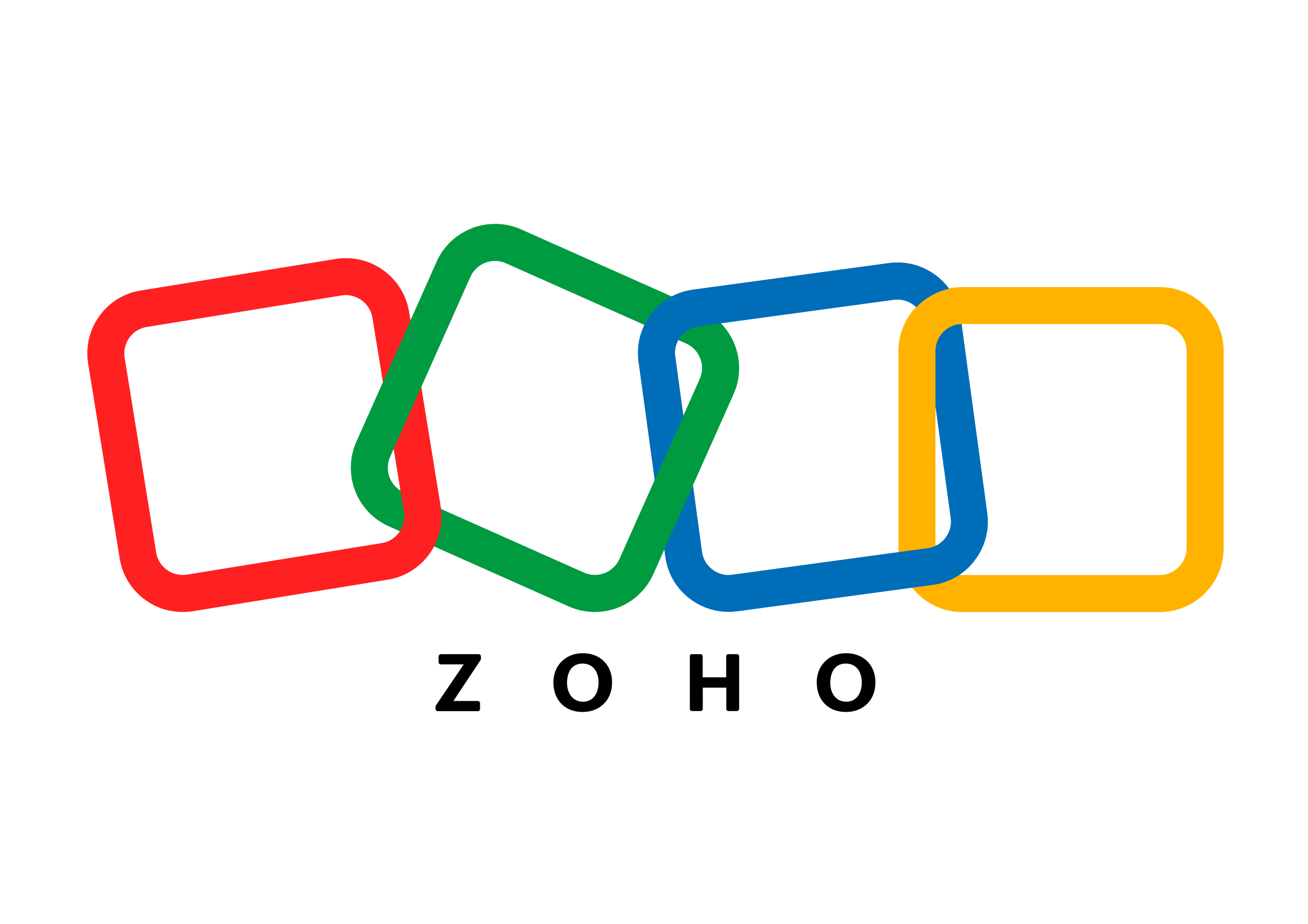
Zoho
Zoho CRM is the best solution for automating business processes of small and medium-sized enterprises. This platform has all the necessary functionality to manage the sales funnel and develop your company. Such features significantly save your time and reduce the likelihood of errors.
Zoho‘s strengths lie in its ability to fine-tune its processes, create workable sales schemes, and develop new leads. And also save information about clients, meet their needs and provide them with more personalization of the service.
Companies in different areas will operate on the basis of CRM: from web studios to large trading networks. The platforms help organize interactions with clients, monitor the productivity of employees, plan assignments, generate acts, contracts and other business documentation. Particularly popular is CRM for browsers with additional modules. Sales managers interact with clients through a remote access system, and the manager immediately updates the company’s work.
The use of Zoho CRM for businesses is a great innovation opportunity to increase efficiency, increase sales and improve the level of customer service.
Convenience
- First of all, employees appreciate the intuitive navigation and clear interface, which allows even beginners to quickly navigate the system.
- In addition, Zoho CRM offers advanced automation – you can automatically distribute leads, send emails, create tasks and launch workflows without manual intervention.
- Also, the system supports integration with a large number of services, including Google Workspace, Microsoft 365, Slack, WhatsApp, which makes the workflow more convenient and centralized.
- Moreover, Zoho provides a mobile application with full functionality, so users can view reports, manage deals and communicate with customers right from their smartphone
- Finally, the platform has a built-in AI assistant Zia, which helps employees forecast sales, find trends and even suggest next steps in working with a client.
Pricing policy
- Standard $16 /user/month/billed annually.
- Professional $27/user/month billed annually.
- Enterprise $47/user/month billed annually.
- Ultimate $61/user/month billed annually.
- Free plan: available too.
Key features:
- First of all, Zoho is a modular system, each block (leads, interests, campaigns, assignments) can be customized, which allows for unique work processes.
- In addition, the system supports automation of sales and marketing – from distribution to complex workflows with triggers and minds.
- Also, the platform includes built-in analytics and visibility, where developers can create powerful dashboards, set KPIs and make decisions based on the data.
- Moreover, the system uses proprietary intelligence Zia, which not only analyzes the behavior of clients, but also recommends upcoming deadlines, transmits the credibility of the client and also analyzes the mood in email.
- We found that the system supports integration with more than 500 services, including the Zoho family (Books, Campaigns, Desk), as well as third-party platforms such as Gmail, Slack, WhatsApp and Zapier.
Advantages
- Wide functionality – includes everything: lead management, automation, analytics, marketing, customer support.
- Customization – you can adapt fields, modules, processes and rules for any business.
- Affordable price – one of the highest budget CRMs in its class, and a no-cost tariff for small teams.
- Scalability is suitable for both small businesses and medium-sized and large companies.
- AI assistant Zia – helps with forecasting, automates suggestions and analytics, which adds “intelligence” to the robot.
Disadvantages
- Foldability for beginners – due to the great number of functions, getting started will require time and patience.
- The interface looks outdated compared to more modern CRMs, such as Monday and Pipedrive.
- Other technical glitches occur from time to time – sometimes in mobile applications or during integrations.
- The support can be generous – especially on the cost-free or basic tariff.
- Discounted in cheap tariffs – many functions are not available in paid or higher plans.
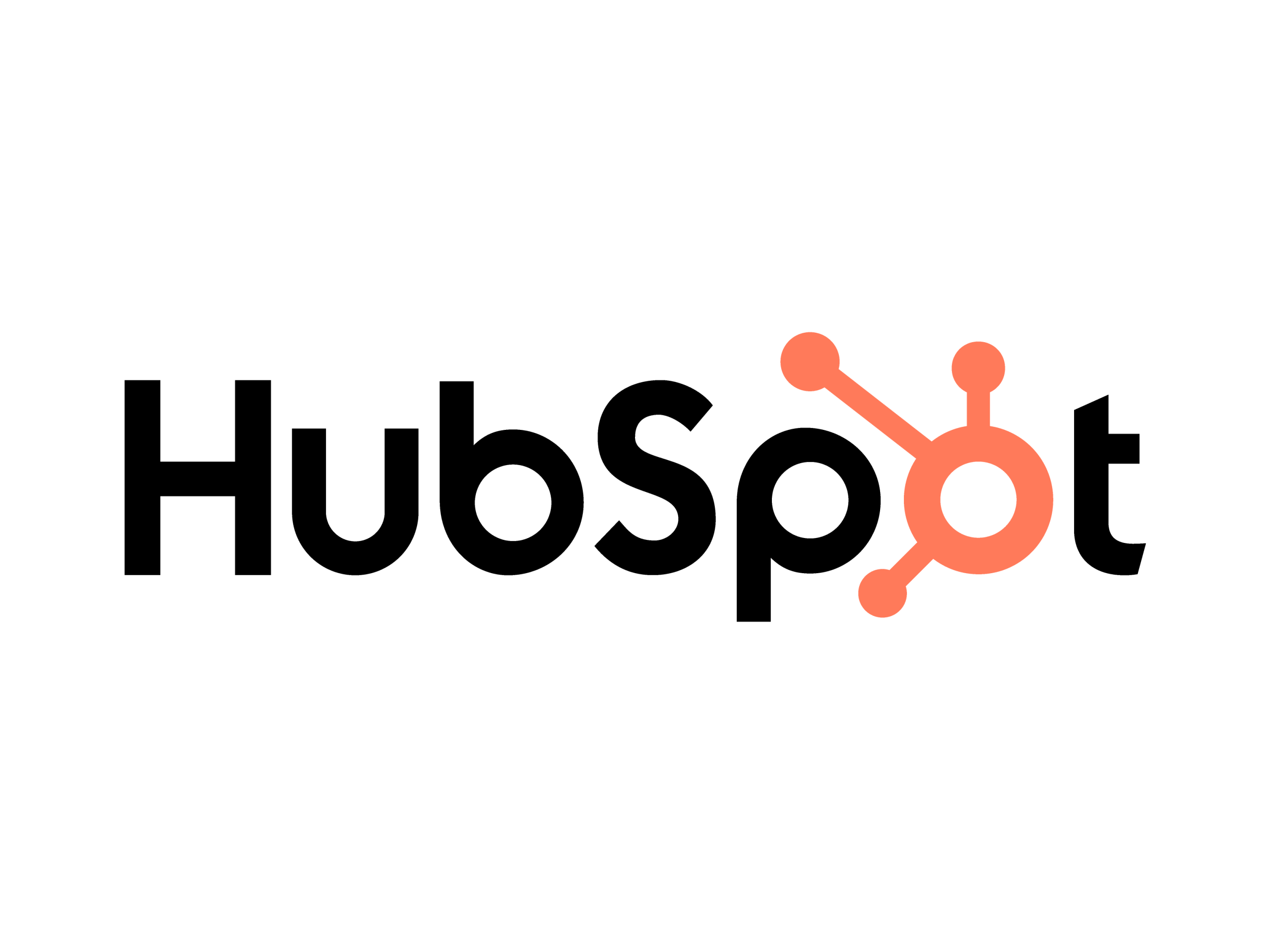
HubSpot
HubSpot CRM is a centralized hub for managing all your customer interactions and tracking their activity across all platforms. The powerful and intuitive system supports cloud integration, helps automate advertising campaigns, and manages sales.
HubSpot CRM is a universal solution for sales and communication with customers of the company with a convenient interface. The platform provides automation, helps to track the activity of the target audience and increase sales.
The platform is a single interface in which all team members can work. Any changes made by one member are instantly reflected for everyone, which allows you to focus on increasing the efficiency of the departments, and not on manual data management.
Convenience
- Above all, HubSpot CRM has an incredibly user-friendly interface that is intuitive for beginners – everything is logically organized and easily accessible.
- In addition, the system automatically saves interactions – leaves, calls, notes and notes are automatically recorded in the client’s profile, without the need for manual entry.
- Additionally, HubSpot provides cost-free access to a wide range of tools: from website marketing to marketing forms, listing templates and chat for the site.
- Moreover, clients can easily synchronize CRM with email services (for example, Gmail or Outlook), making the work even more manual and uninterrupted.
- And if you decide that with a mobile app, business owners can work with CRM at any place – look through your accounts, contacts, add notes and schedule calls on the go.
Pricing policy
- Service Hub: Price starts at $45 for 2 users per month.
- Marketing Hub: In this version you get the ability to use forms for the site, send emails, create landing pages, basic segmentation of the customer base and chat for the site. Price starts at $45 per user per month.
- Sales Hub: The Starter package includes 2 paid users, the ability to set up 2 sales funnels with their own stages, you can use up to 5,000 email templates, and more. starts at $45 (2 users) per month.
- CRM Suite Enterprise: The version expands the limits on the number of reports/emails/scoring models, adds advanced tools (for example, comparison of attribution models, monitoring competitors in social networks, adaptive testing of web pages), etc. Price starts at $4,000 per month.
- CRM Suite Professional: The Professional version adds, first of all, automation capabilities, reporting, smart content – the ability to adapt content in emails and on pages, and starts at $1,600 per month.
- Free Plan: Basic marketing tools like forms, landing pages, email marketing, and basic reporting. Suitable for: Individuals or very small businesses just starting out with marketing automation. available for unlimited users.
Key features:
- First of all, HubSpot is a free basic CRM that provides extensive capabilities even without payment: contact management, deals, tasks, and basic analytics.
- In addition, the system is built on a single platform for sales, marketing, service, and content, which allows you to conveniently manage all customer interactions in one place.
- HubSpot also has deep automation: you can set up complex email mailing chains, automatic status updates, create tasks, and much more.
- In addition, the system provides built-in analytics and visual dashboards that help you easily track team performance and see the overall picture of sales.
- Finally, HubSpot is known for its wide ecosystem of integrations — it easily connects to Gmail, Outlook, Zoom, Slack, Stripe, WordPress, Zapier, and hundreds of other services.
Advantages
- First of all, HubSpot CRM has a free plan that includes extensive functionality for managing contacts, leads, tasks, emails, and deals.
- In addition, the system is distinguished by an intuitive and modern interface that does not require a long learning curve — everything is clear at first glance.
- Also, HubSpot integrates with a huge number of third-party services (Zoom, Gmail, Slack, Stripe, etc.), which makes workflows convenient and seamless.
- In addition, the platform provides strong support for marketing processes: email newsletters, forms, automation, and analytics — everything is built into the free plan.
- Finally, HubSpot has detailed analytics and dashboards that are easy to configure and help you quickly assess the effectiveness of sales and marketing.
Disadvantages
- However, advanced functionality (e.g., full automation, additional analytical reports, extended access rights) is only available in paid plans, which can be quite expensive.
- Also, limitations in customization of some elements (e.g., modules or forms) can be an obstacle for companies with unique processes.
- Finally, the increase in cost when scaling (adding new users or features) can be unexpected and not always justified for small businesses.

Pipedrive
The system not only stores customer data, but also helps organize the sales process so that nothing is missed. And Pipedrive’s integration with artificial intelligence will help you make more informed decisions in the sales process.
In today’s world of sales, where speed and efficiency are crucial, companies are increasingly turning to CRM solutions to streamline their operations. Pipedrive is a platform designed specifically for sales teams, helping them organize their processes, automate routine tasks, and focus on what matters most: closing deals. With a simple interface, flexible settings, and analytics, Pipedrive has become a popular choice for small and medium-sized businesses. Below, we’ll take a look at its key features, benefits, and why it’s worth considering.
Convenience
- First, the user gets a clear and clean visualization of sales, which allows you to easily track the status of each deal.
- In addition, all actions — calls, emails, meetings — can be added to contacts or deals in a few clicks, which saves the entire history of interaction.
- Also, users can customize the interface to suit themselves: change fields, statuses, funnels and dashboards.
- In addition, the system sends reminders and automatic notifications so that nothing gets lost in the flow of tasks.
- Finally, the Pipedrive mobile application allows you to manage deals from anywhere, which is convenient for salespeople “in the field.”
Pricing policy
- Essential: $14 per user per month (billed annually). Ideal for beginners and small teams needing basic CRM features.
- Advanced: $29 per user per month (billed annually). Ideal for businesses with established sales teams seeking customization and deeper reporting.
- Professional: $49 per user per month (billed annually). Ideal for businesses with established sales teams seeking customization and deeper reporting.
- Power: $64 per user per month (billed annually). Key Features: AI-powered insights, flexible collaboration tools, and enhanced support.
- Enterprise: $99 per user per month (billed annually). Ideal for large-scale businesses requiring maximum account security and extensive customization.
Key features:
- First of all, Pipedrive is a sales-focused CRM that allows you to manage all stages of a deal through a convenient visual funnel.
- In addition, the system offers automation of workflows – from creating tasks to sending emails based on triggers.
- Also, Pipedrive has advanced analytics and reporting that helps evaluate the effectiveness of managers and predict results.
- Moreover, the CRM has integrations with over 400 services – from Google Workspace to Zoom and Trello, which allows you to centralize your work.
- And finally, the system offers built-in email tracking, email templates and mailing functions, which simplifies communication with customers.
Advantages
- First of all, the platform has an intuitive interface that makes it easy for even new users to navigate the system — everything is logical and visual.
- In addition, the system is focused on managing the sales funnel, which makes it ideal for teams that want to control every stage of the deal.
- Pipedrive also offers flexible automation of tasks, emails, status changes, etc. — all of which saves time and increases productivity.
- Finally, the CRM has powerful analytics and dashboards that allow you to track your team’s results and make informed decisions.
Disadvantages
- However, the system does not have a free plan, which can be a disadvantage for microbusinesses or startups with a limited budget.
- In addition, some advanced features (e.g., automation, email tracking) are only available in higher paid plans.
- Also, there are fewer integrations than in CRMs like HubSpot or Zoho — sometimes you have to use third-party services like Zapier.
Main ideas and conclusions
So, choosing an inexpensive CRM system is not just about finding the lowest price tag, but a balanced decision that should take into account both the needs of the business and the functionality of the platform. On the one hand, cost matters, especially for small and medium-sized businesses, where every hryvnia spent should be justified. On the other hand, a too “cheap” platform without the necessary capabilities can lead to wasted time, inefficient work and additional costs in the future.
That is why when choosing, you should pay attention not only to the price, but also to the key characteristics of the systems: user-friendly interface, flexible settings, analytics, automation and the availability of integrations.
There are many worthy solutions on the market. For example, Pipedrive is great for sales teams that want a simple and visual funnel. HubSpot attracts with its free base and user-friendly interface. Salesforce is a powerful, albeit more expensive system that provides maximum scalability. Capsule is minimalistic and convenient for small teams. Freshsales offers automation and built-in telephony. Zoho is impressive in its price/feature ratio. Monday Sales is perfect for those who value visuals and team collaboration.
Ultimately, the key to a successful choice is a balance between cost, convenience, and the real needs of the team. After all, even an inexpensive CRM can be a powerful growth tool if chosen wisely.

